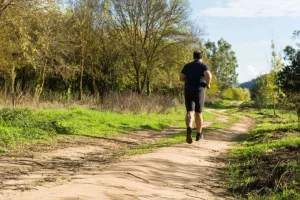When I first came into Overeaters Anonymous, I quickly learned to respect anonymity: who I saw, who said what—none of that was mine to share with anyone. Basically, I learned not to gossip about who, what, where, or when. This made sense to me, especially because I didn’t want anyone to know who I was or tell anyone what I had said or that I was attending OA. I valued my privacy and could understand others wanting their privacy too. At the time, The Tools of Recovery pamphlet clearly stated to me all there was to know about anonymity.
My Higher Power blessed me with a wonderful sponsor who encouraged me to study the Steps and Traditions. Each time through, I learned a little more and understood a little better. But I really had trouble with Tradition Twelve. How could anonymity be the foundation of my program? Surely the foundation was abstinence or the Steps, not anonymity. Not gossiping, not saying who I saw or who said what—how did that fit in?
In my personal and professional life, I knew stars and VIPs. They had specific personas, and I had certain expectations of them given that they were stars and VIPs. In my own world, I was a minor star and VIP as an instructor, coach, and manager. People had perceptions and expectations of me. Unfortunately, I felt I had to portray a certain persona and fill or exceed certain expectations, especially my own. This caused me to feel better than and less than everyone and to be filled with fear, doubt, and insecurity.
As I kept coming back and heard more about anonymity, I slowly learned that I could just be myself. True, I didn’t know who I really was, but in the safety of anonymity, I learned I was one of many, neither better than nor less than. There were no expectations, either real or imagined, that I had to fulfill. My sponsor and my Higher Power loved me just the way I was, and by studying the Steps and the Traditions, I started to love myself! This allowed me to gain relief from “the bondage of self” (Alcoholics Anonymous, 4th ed., p. 63) and begin becoming another person. But how was this possible?
With each reading of The Twelve Steps and Twelve Traditions of Overeaters Anonymous, Second Edition, I learned that each Step and Tradition has a Spiritual Principle: qualities such as honesty, hope, faith, courage, integrity, unity, trust, neutrality, identity, fellowship, responsibility, structure, and others—twelve and twelve altogether—that helped me become a better me to myself and others.
In reading and rereading page 168 of the Twelve and Twelve, I also learned, “As we recover in OA, we come to feel that anonymity is one of our most precious possessions. Anonymity is the spiritual foundation of our transformed lives. . . . We know that support for our recovery will always be here for us, as long as we remember ‘to place principles before personalities,’ (Tradition Twelve) respecting these vital Twelve Traditions that bind us together in the Fellowship of Overeaters Anonymous.”





